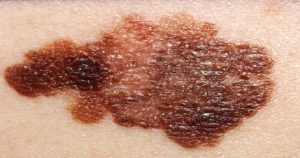Immunotherapy Treatment for Skin Cancer in Delhi | India-Patient resources

Dr. Waseem Abbas
Cancer Treatment Specialist
Director Research, Max Hospital, Shalimar Bagh
How to contact me
Max Superciality Hospital, FC 50, C and D Block, Shalimar Place Site, Shalimar Bagh, New Delhi, Delhi 110088
Phone: +91 98112 42729
Email: drabbasdoc@gmail.com
Search this website
Common Cancers in India
Get a free E-consultation about lung cancer immunotherapy in Delhi
Patient education and resources
Immunotherapy for melanoma has changed the way cancer is treated.
Melanoma is a very aggressive skin cancer with highest incidence in western countries where exposure to sunlight and UV Radiation is high. Approximately 290,000 people are diagnosed with the disease each year, in addition to about 61,000 deaths.

Melanoma is an aggressive cancer and very few therapeutic options were available in past. Five year Survival rates for stage I and II malignant melanoma is 90 percent. Survival rate for stage 4 and stage 3 is poor, because chemotherapy and other targeted drugs do not work for malignant except few e.g., vemurafenib and dabrafenib.
In 2015 data was published which showed that 20 t0 30 percent of patients treated with check point inhibitors were alive at 3 years.
Different studies showed that 30% to 40% of patients were alive at 5 years.
Such a dramatic improvement in survival was never seen before and now immunotherapy has become the standard of care. We are seeing more and more patients survive longer.
The Food and Drug Administration (FDA) has approved three types of checkpoint inhibitors for treating melanoma:
ipilimumab (Yervoy), which blocks the checkpoint protein CTL4-A
pembrolizumab (Keytruda), which blocks the checkpoint protein PD-1
nivolumab (Opdivo), which also blocks PD-1
Your doctor may prescribe one or more checkpoint inhibitors if you have stage 3 or stage 4 melanoma that can’t be removed with surgery. In other cases, they may prescribe checkpoint inhibitors in combination with surgery.
Cytokine therapy
Treatment with cytokines may help boost your immune system and strengthen its response against cancer.
The FDA has approved three types of cytokines for the treatment of melanoma:
interferon alfa-2b (Intron A)
pegylated interferon alfa-2b (Sylatron)
interleukin-2 (aldesleukin, Proleukin)
Interferon alfa-2b or pegylated interferon alfa-2b is generally prescribed after melanoma has been removed with surgery. This is known as adjuvant treatment. It may help lower the chances of the cancer returning.
Proleukin is most often used to treat stage 3 or stage 4 melanoma that has spread.
Oncolytic virus therapy
Oncolytic viruses are viruses that have been modified to infect and kill cancer cells. They may also trigger your immune system to attack cancer cells in your body.
Talimogene laherparepvec (Imlygic) is an oncolytic virus that’s been approved to treat melanoma. It’s also known as T-VEC.
Success rates of immunotherapy
Cost of immunotherapy
The out-of-pocket cost of immunotherapy varies, depending in large part on:
1, The type and dose of immunotherapy you receive
2, Whether or not you have health insurance coverage for the treatment
3, Whether or not you’re eligible for patient assistance programs for the treatment
4, Whether you receive the treatment as part of a clinical trial
When to stop?
We do not stop immunotherapy for stage 4 malignant melanoma patients. We want to keep disease in control and do not allow it to grow because if it becomes resistant then few options are available
Newer treatments
Some other types of immunotherapy have shown promise in treating melanoma in early studies. Other studies are now looking at combining different types of immunotherapy
